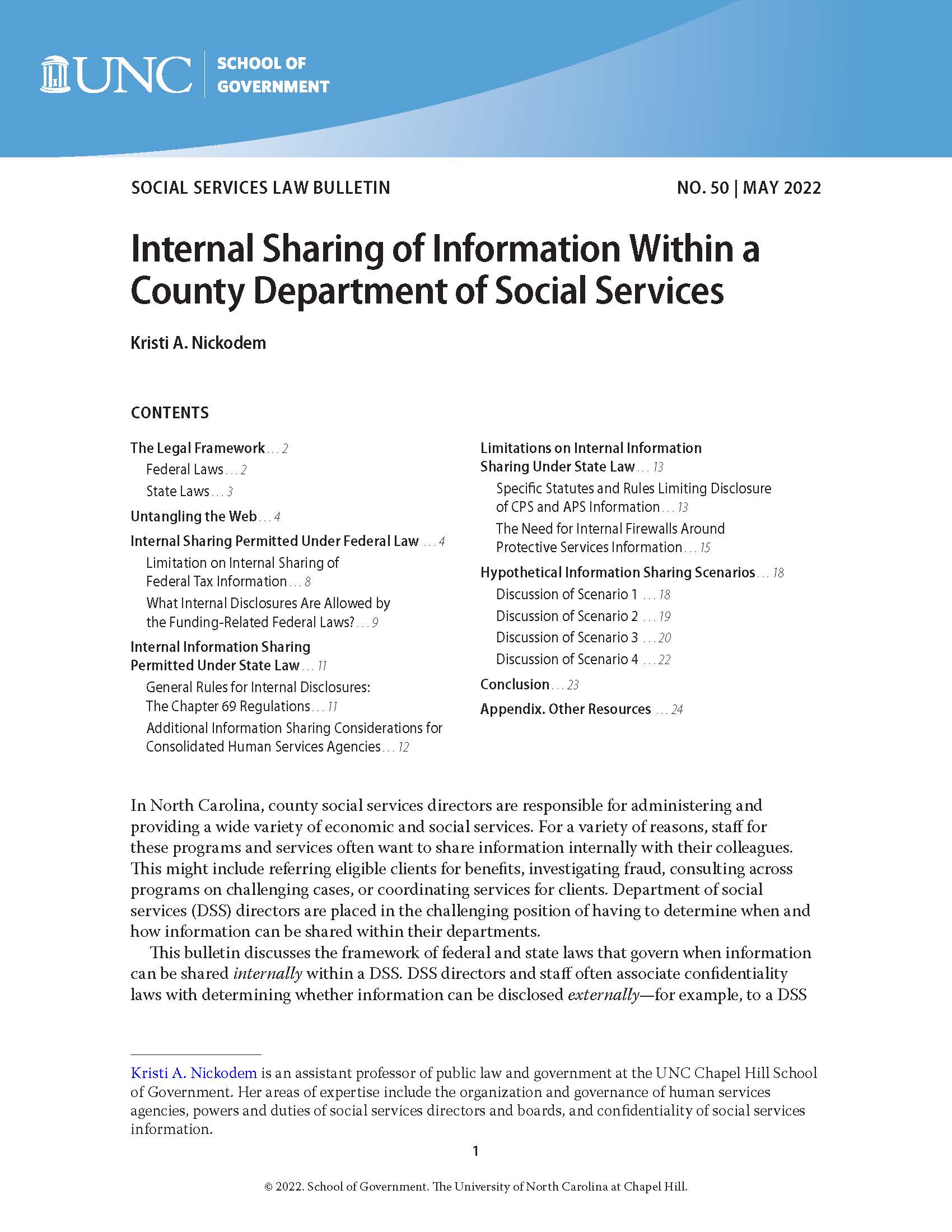Social Services Law Bulletin #50
Internal Sharing of Information Within a County Department of Social Services
In North Carolina, county social services directors are responsible for administering and providing a wide variety of economic and social services. For a variety of reasons, staff for these programs and services often want to share information internally with their colleagues. This might include referring eligible clients for benefits, investigating fraud, consulting across programs on challenging cases, or coordinating services for clients. Department of social services (DSS) directors are placed in the challenging position of having to determine when and how information can be shared within their departments.
This bulletin discusses the framework of federal and state laws that govern when information can be shared internally within a DSS. DSS directors and staff often associate confidentiality laws with determining whether information can be disclosed externally—for example, to a DSS in a different county, to law enforcement, to another government agency, or to an individual who received services from a DSS. However, the laws governing disclosures of confidential information also apply to internal disclosures. Internal disclosures may occur when DSS staff share information across programs or between units or internal departments within the DSS. For example, income maintenance staff may ask the DSS director if they can review information about a family receiving child welfare services in order to assess a case of potential benefits fraud. Child welfare staff may request information from adult protective services (APS) staff for purposes of determining a case plan for a parent and a child. APS staff may ask for information from income maintenance staff to ensure that proper economic services are being provided to a vulnerable older adult. Each of these situations requires an analysis of whether an internal disclosure of the requested information is permissible.




